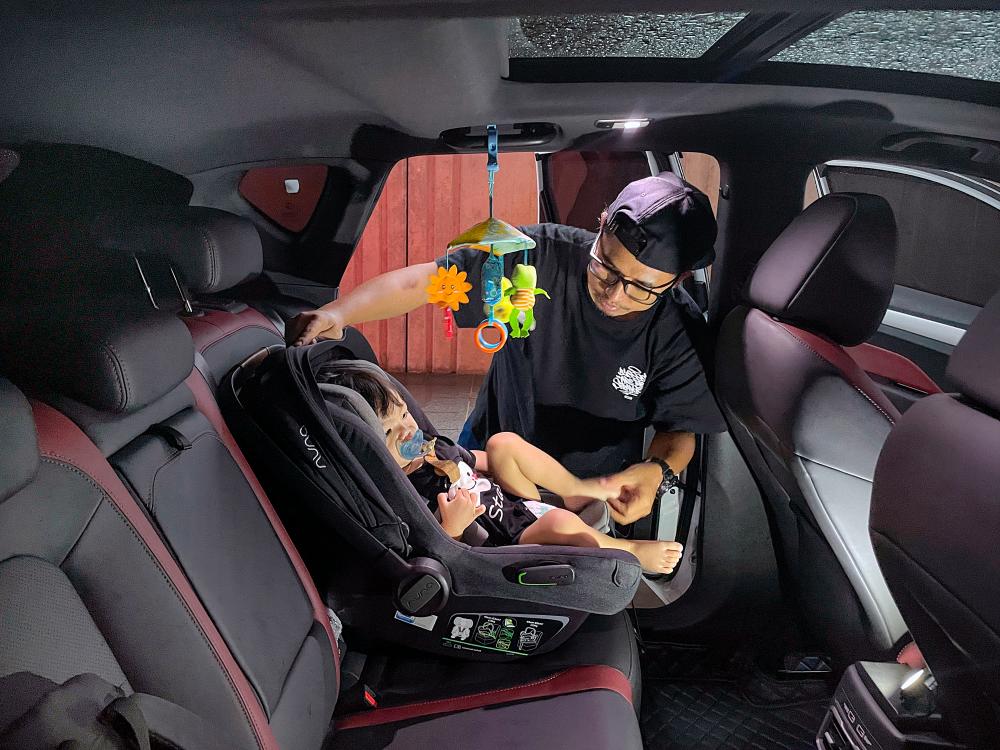KUALA LUMPUR: There have been numerous cases of babies and toddlers who died after being left behind in cars by absent-minded parents.
While one is tempted to blame the parents for being negligent over the safety of their children, they could be suffering from “Forgotten Baby Syndrome” (FBS).
The US National Institute of Health defines FBS as the phenomenon of forgetting a child in a parked vehicle. Psychologists suggest that it is functionally similar to forgetting keys in a car or forgetting to post a letter.
Caused by common factors such as stress, sleep deprivation, and a change in routine, FBS is growing in numbers in the US and causing significant repercussions for the parent involved, the family and society.
In the most recent case in Malaysia on Feb 1, a five-year-old girl died after being found unconscious in her mother’s car at the Shah Alam Hospital parking area where she was left for four hours.
In October last year, an eight-month-old infant was found dead after she was left in her mother’s car for almost 10 hours at a hospital parking area in Cheras.
The mother claimed she thought she had dropped her child off at a childcare centre before going to work, but instead, she absent-mindedly drove to her workplace.
In a third case the same month, a 16-month-old toddler died after being found unconscious in a car at a public university in Kuala Nerus, Terengganu.
She was left behind by her father who claimed to have forgotten to send her to the childcare centre before heading to work at the same university.
Consultant paediatrician and child-disability activist Datuk Dr Amar-Singh HSS said leaving a child in a vehicle causes heat stroke, leading to such fatalities.
Amar said young children are far more sensitive to heat than adults because they have a relatively larger exposed body surface area, and their sweating mechanism is not as well developed.
“All it takes is less than 20 minutes in direct sunlight inside a closed vehicle to kill a child since the body temperature could rise three to five times faster than adults.”
He said while death is often the result, other potential consequences of being left in the car for extended periods include brain swelling, multi-organ bleeding and death of the cells in the body tissue.
“Such deaths could also happen when a child under five years falls asleep in a car that’s being driven. If a ‘break in routine’ occurs, the parent could unintentionally leave the child in the vehicle while attending to urgent matters or work.
“If we listen to the parents’ stories, one would realise that we are not that different from them, and that such incidents could happen to us as well.
“Most of the affected parents suffer long-term guilt and have difficulty forgiving themselves.”
Amar said parents should keep an important item in the back seat with their child, such as a handbag, mobile phone or shoes as a reminder, or keep an object in the front seat to remind them of their child.
Make it a habit to check the car each time when alighting from it.
Amar said the government must tackle FBS by meeting car manufacturers to request additional safety measures for children ferried in cars.
“While FBS incidents do not happen in Malaysia daily, each death is still a tragedy and will not disappear without government-led change.”
The negligence of leaving a child in an unattended vehicle is an offence under Section 31(1)(a) of the Child Act 2001, and carries a fine of not more than RM50,000 or imprisonment of not more than 20 years or both.









